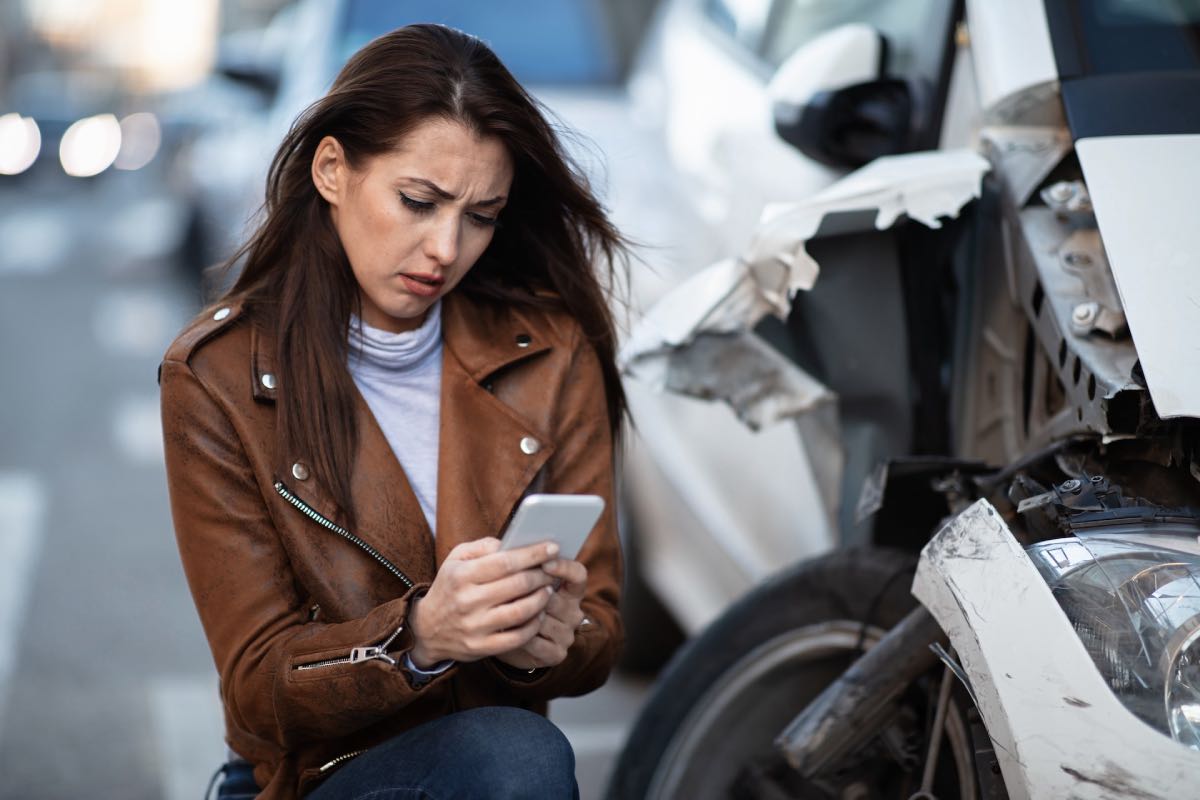Responsibility for a crash still matters if you have no insurance but the other driver was at fault. If the other driver was liable for the wreck, you’re most likely still eligible for compensation. Regardless of who caused the crash, emergency responders might still cite you for FMFR (failure to maintain financial responsibility).
Some jurisdictions connect financial compensation with FMFR. For example, Louisiana courts reduce compensation in accordance with the no-insurance penalty. More on that below.
Incidentally, there’s a difference between fault and liability. Accident fault, a preliminary determination, is like a halftime score. Liability for damages, a final determination, is the only score that matters.
Penalties for Driving Without Insurance (Not at Fault)
All states have mandatory auto insurance laws. The minimum coverage limits vary by state, as do FMFR penalties. These penalties usually apply even if the other driver was at fault for the crash.
- Alabama Model: Some states impose light penalties on drivers without insurance, especially for a first offense. Furthermore, state laws usually encourage courts to dismiss these cases if the owner buys insurance.
- Arkansas Model: Many states require drivers to buy a policy from a state-approved insurance company. Arkansas model states allow insurance alternatives, such as a bond or even a statement that the owner is self-insured.
- Louisiana Model: These states focus on drivers’ license suspension-related punishments, as opposed to fines. FMFR penalties often include vehicle impoundment, revoked auto registration, and surrender of license plates.
- Mississippi Model: FMFR Is a very serious infraction in some states. It might even be a felony in some cases. Mississippi model states usually combine very high fines with lengthy drivers’ license suspension, even for a first offense.
Almost all states order drivers to furnish insurance information to emergency responders, whether or not they were at fault for an accident. Most states also require motorists to provide proof of insurance at non-accident traffic stops, such as speeding stops.
Consequences for At-Fault, No-Insurance Accidents
In most cases, uninsured drivers are completely financially responsible for at-fault accidents. This financial responsibility includes hiring a lawyer, paying all litigation-related costs, such as expert witness fees, and paying a judgment or settlement.
If an insured driver is financially responsible for damages and cannot pay them, the court could seize and liquidate the person’s assets in order to pay the debt.
Even a minor fender-bender could cause tens of thousands of dollars in damages. Today’s motor vehicles are very expensive to repair or replace. Furthermore, these accidents often cause significant personal injuries, such as whiplash.
A third party, such as an employer, could be financially responsible for damages, thus relieving the tortfeasor (negligent driver) of this burden. These cases are quite complex.
How a Lawyer Can Help
A criminal defense lawyer should handle criminal FMFR charges. Attorneys often negotiate favorable plea bargain agreements in these situations. This agreement could mean a lower penalty or a reduced charge.
A personal injury lawyer should always evaluate an accident case. As mentioned, there’s a difference between fault and liability. Wrong-way wrecks are a good example. Insurance investigators almost always conclude that the wrong-way driver was at fault for the wreck. However, the other driver could be liable for damages, under the last clear chance doctrine.
Experienced personal injury lawyers quickly and thoroughly evaluate claims and work for maximum compensation, which includes:
- Medical treatment, including reasonably necessary future medical treatment,
- Lost income and diminished earning capacity,
- Property damage, as mentioned above, and
- Emotional distress.
Most civil cases settle out of court. Usually, a professional mediator works with both sides and facilitates these agreements.
No Pay, No Play Laws
We mentioned these laws above, during our discussion of the Louisiana model. These laws are an expression of the unclean hands doctrine.
Basically, this doctrine states that people who break the law cannot expect relief from the law, if the violation and relief are related to the same transaction. Uninsured drivers cannot receive full compensation, landowners cannot enforce leases they pressured tenants to sign ,and so on.
Louisiana’s no pay, no play law is a typical one. It prohibits injured drivers who violated the auto insurance requirement from obtaining:
- The first $15k of personal injury damages (whiplash, broken bones, etc.) and
- The first $25k of property damage (vehicle repair or replacement).
States without formal no pay, no play laws usually have informal laws. In other words, the victim’s failure to maintain financial responsibility could be used against him/her in court.

